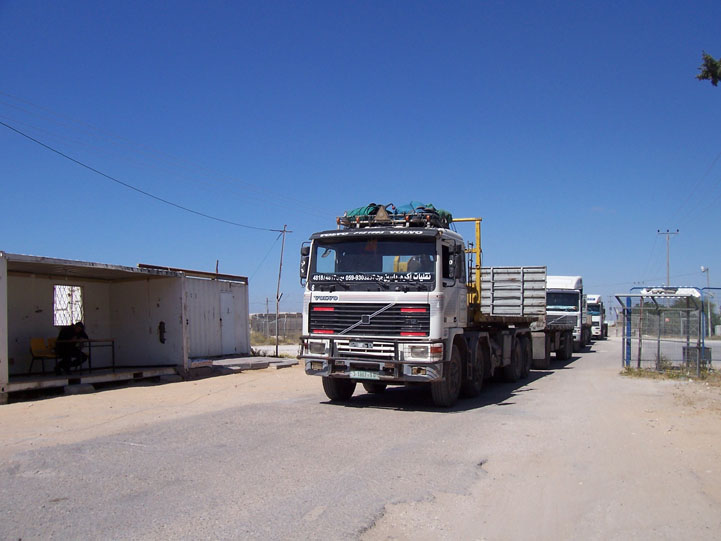Opening Rafah, the sole border crossing between the Gaza Strip and Egypt, to allow humanitarian supplies to enter Gaza could have an immediate impact on the livelihoods of 1.5 million Palestinians living there, according to UN agencies and officials from the Hamas-led government.
Israel tightened its blockade of Gaza, due to security concerns, after Hamas seized control of the territory in 2007. Through prolonged border closures Israel has restricted the import of fuel and commercial goods, as well as most construction and raw materials, and has largely banned the movement of people, according to the UN Office for the Coordination of Humanitarian Affairs (OCHA).
“If Rafah opened, this would change the entire situation in Gaza. People are in desperate need of materials, mainly medical supplies and construction materials,” Ahmed Al-Khord, social affairs minister in Gaza, told IRIN.
After nine activists were killed in May 2010 during an attempt to deliver humanitarian aid to Gaza, Rafah has been open to a limited number of passengers.
Stranded
However, since the start of the Egyptian crisis on 25 January, Rafah has been closed, said Ghazi Hamad, Hamas’s most senior official overseeing the Rafah crossing on the Gaza side, stranding thousands of Palestinians on the Egyptian side.
Gaza health minister Bassem Naim told IRIN he is concerned about the more than 1,000 medical patients who need to exit Gaza every month for urgent treatment.
| Prices soar in Gaza as Rafah, tunnels close |
|
|
| GAZA - More than a week of political unrest in Egypt has heightened the threat of a humanitarian crisis in neighbouring Gaza. Egyptian soldiers fled their posts on the northern border on 30 January, forcing the Rafah crossing - a critical valve for the 1.5 million Palestinians living in Gaza - to close. Around 60 Palestinians, attempting to return home via Cairo when Gaza’s southern border closed, are still being held in the “deportation room” at Cairo airport. Among them are six children and several critically ill patients who are running out of medication. Click here for the full report |
Tunnels, barriers
Underground tunnels along the Gaza-Egypt border remain a vital lifeline for Gazans, supplying the market with goods restricted from entering Gaza through the Israeli-controlled crossings, reports OCHA.
In 2010, Egypt constructed an underground steel barrier along the border to deter tunnel-digging, though reports suggest that smugglers frequently penetrate the wall with blowtorches.
The USA has provided Egypt with over US$116 million in foreign military financing aid to bolster its border security and combat tunnel smuggling, including a mobile ground surveillance radar and support system and a border tunnel activity and detection system, according to the Congressional Research Service (pp11-12).
The Egyptian consul in Tel Aviv declined to comment on its current re-assessment of the Rafah crossing.
The World Bank believes that using Rafah as a trade corridor to ship goods from Gaza to Egypt’s terminal at the entrance to the Suez Canal and to Cairo airport could provide competitive trade logistics in terms of performance and at a cost generally equivalent to, or less than, Israel’s ports and airports.
This trade corridor could resuscitate Gaza’s moribund economy and would offer the Palestinians direct access to the Gulf and Europe, which are potentially the most lucrative markets for Palestinian exports.
Cutting time to market would solve one of the most pressing problems for Gaza’s strawberry and flower growers, who currently face a high degree of uncertainty in getting their perishable produce through the border crossings.
es/cb
This article was produced by IRIN News while it was part of the United Nations Office for the Coordination of Humanitarian Affairs. Please send queries on copyright or liability to the UN. For more information: https://shop.un.org/rights-permissions




